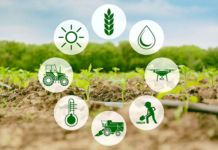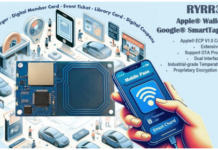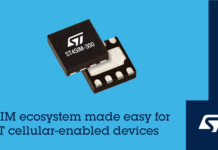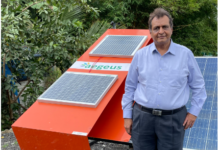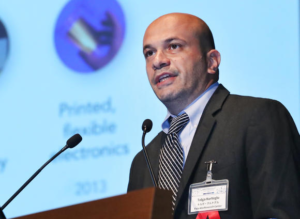
TOKYO — The advent of the internet of things, in which everyday devices are connected via the internet, will offer tremendous opportunities, as well as create disruption and a very different future. But cybersecurity is critical for its success, said Tolga Kurtoglu, CEO of Palo Alto, California-based PARC.
The head of the Silicon Valley company, which pioneered technology platforms like the Ethernet and laser printing, was speaking at the Global Digital Summit in Tokyo on May 29-30. The event, sponsored by Nikkei Inc. and Japan’s Ministry of Internal Affairs and Communications, focused on new technology trends. This year’s theme is “Innovation and Growth Spurred by IoT.”
Coupled with automation, he said, the advances in technology will lead to “greater efficiency and more personalized experiences.”
But while the advancement of the internet of things will revolutionize the way people live, he added, cybersecurity will remain critical.
“We don’t want self-driving cars that can be hacked into,” he said.
Kazuhiro Yoshizawa, president of Japan’s largest mobile carrier NTT Docomo, invoked Moore’s law to describe the rapid advancement in information technology. The observation, named after Intel founder Gordon Moore, holds that computer chips double in capacity every two years.
He said the advancement in computing and data transmission speeds over the years has roughly followed Moore’s law, which was first observed in 1965. In that context, he said, technological advancement is leading to fifth-generation mobile technology, or 5G. The company is eyeing commercial deployment of the technology, which would be faster and less latent than the current 4G standard, by 2020.
Yoshizawa said the new standard could be used to create a new ecosystem and an open business platform in the fields of IoT, artificial intelligence and financial technology, or fintech. He said the company is open to various possibilities and collaborations to create next-generation technology. One example he gave was how Docomo is developing autonomous vehicle technology with internet service company DeNA and Kyushu University.
Steve Koenig, senior director of market research at the Consumer Technology Association, said the internet of things is much more than a trend, and compared the technology to the industrial revolution.
“We are at the cusp of a new revolution, the IoT revolution. The technology here today and being worked on at the moment, like artificial intelligence and robotics, will literally change the way we live, work and play,” he said.
“Now we have clouds of data instead of smoke,” he said. Koenig echoed PARC’s Kurtoglu’s concerns, saying in this digital age, data security and consumer privacy will be large issues that will have to be dealt with.
Koenig said devices like smartphones are the visible parts of the internet of things spectrum, and noted that smartphones account for almost half of global tech spending. “For a lot of us, smartphones are the center of the tech universe,” he said, adding that they act as the primary hub device that consumers around world employ for using the internet.
Wearables are another sector of the internet of things, he said, with products ranging from wristwear and eyewear to even underwear connected to the internet.
And while the global wearables market is in high gear, he said, digital assistance services are also big, including those like Amazon’s Alexa intelligent personal assistant featured in the popular Amazon Echo smart speaker.
Koenig said 5G connectivity, which offers higher speed, greater capacity and lower latency, will for example cut the time it takes to download a two-hour movie to a few seconds from a few minutes now.
The new technology will likely trigger new businesses too, he said. “If we were in a 3G world, we probably wouldn’t have services like Uber and Airbnb. So what new businesses will be possible with 5G?”
Source: asia.nikkei.com



